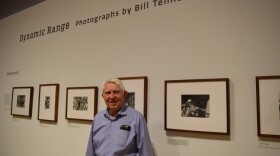Russia President Vladimir Putin has sent troops into Crimea, and is pressing a referendum later this month to confirm separation of the region from Ukraine.
The European Union and the Obama administration are aggressively protesting the invasion and threatening sanctions, no idle gesture given the structural weakness of Russia’s economy.
Violence in Kiev, the capital city of Ukraine, has taken dozens of lives as desperate authorities struggled to suppress growing protest demonstrations. The EU mediated a truce announced on February 21, which has brought temporary calm to the city, and should facilitate early presidential elections.
Ukraine President Viktor Yanukovych, now a fugitive given refuge in Russia, tried frantically to survive in office. On January 28, he removed loyal but ineffective Prime Minister Mykola Azarov and the rest of the cabinet. Earlier dictatorial moves, amid corruption allegations, sparked the demonstrations.
The violence within Ukraine reflects a wider tug-of-war for alliance and influence between the EU and Russia. So far, the latter led by President Vladimir Putin has held the upper hand. Protests began in November, when Ukraine’s government rejected an historic agreement to associate closely with the EU, and opted instead for expanded ties with Moscow.
While the violation of human rights should be denounced, effective policy requires putting current events in broad historical context. George Kennan, probably the most perceptive American analyst of Russia, wrote in 1954 that Soviet leaders ‘are not like … us.’ War to the death with Nazi Germany has had a profound continuing impact on the nation, including the current generation. Totalitarianism fed traditional anxieties regarding territory and national security.
Contemporary Islamic extremism adds to ethnic tensions. Putin has successfully contained various separatist movements in Russia, notably in Chechnya. Chechen President Ramzan Kadyrov was previously a powerful separatist leader, but has been persuaded to change and is now allied with Moscow.
The tough-talking officials of the George W. Bush administration pressed eastern expansion of NATO, including membership by both Georgia and Ukraine. Not surprisingly, Russia became alarmed.
During this period, Georgia launched a military attack on breakaway South Ossetia. In reaction, the Red Army in 2008 invaded. President Nicolas Sarkozy of France brokered the cease fire; the Bush administration did nothing.
Ethnic instability is endemic to the entire region. During World War II, Soviet dictator Josef Stalin suddenly arbitrarily deported the sizable population of Meskhetin Turks from Georgia as part of a vast relocation of an estimated 1.5 million people to Central Asia and Siberia.
An estimated 700,000 Georgians fought in the Red Army. Smaller but still substantial numbers joined Hitler’s forces. The forces on both sides earned in blood deserved reputations as dedicated warriors.
Ukraine likewise is historically entangled with Russia, in complex ways. The beginning of the Russian revolution in 1917 sparked an independence movement. After years of struggle, Ukraine eventually was absorbed into the new Soviet Union.
The Soviet regime forced collectivization of farms, resulting in vast mass starvation. Moscow authorities still suppress the details of this crime. Ukraine was also the target of murderous Stalinist purges aimed at destroying any independence sentiments.
Given this history, essential caution should define U.S. policy, including on human rights. The Obama administration in this regard represents an improvement from the Bush boasters.
An important additional factor is the steadily expanding economic power of Germany across Europe, encouraging rapprochement with Russia. This will limit future U.S. influence, but that is a subject for a future column.
Arthur I. Cyr is Clausen Distinguished Professor at Carthage College and author of ‘After the Cold War.’ Contact him at acyr@carthage.edu





